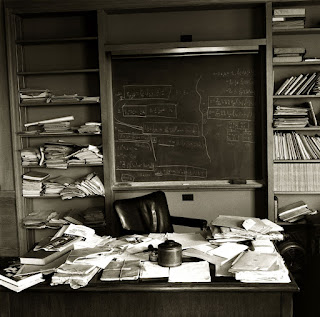Can Science and Faith Co-exist?
This blog post explores whether you can be both a good scientist and believe in God, by examining the religious faith and contributions made from some of the greatest scientists throughout history.
Can you be both a good scientist and believe in God?
(By Michelle Smithe, contributor/volunteer at docradio.org)
It turns out the history of science is rich with believing Christians, for whom the process of discovery did not jeopardize their faith, but enforced it.
The importance of believers in the history of science is revealed by none other than Albert Einstein. Einstein kept pictures of three scientific heroes on the wall of his study: Isaac Newton, Michael Faraday, and James Clerk Maxwell.Consider Isaac Newton, who co-discovered calculus, formulated the laws of motion and gravity, computed the nature of planetary orbits, invented the reflecting telescope, and made a number of discoveries in optics. Newton had profound knowledge of, and faith in, the Bible. Newton’s understanding of God came primarily from the Bible, which he studied for days and weeks at a time. Newton is generally considered the Greatest Scientist/Mathematician ever, yet he spent more time on theology than on science. In fact, he wrote about 1.3 million words on biblical subjects.
Michael Faraday is considered the father of electricity. He was a British physicist and chemist who is best known for his discoveries of electromagnetic induction and of the laws of electrolysis. His biggest breakthrough in electricity was his invention of the electric motor. Faraday was a passionate Christian and church elder.
And finally James Clerk Maxwell discovered the fundamental equations that light and all forms of electromagnetic radiation obey. His analysis provided the first insight into what would make radio transmissions possible. Many physicists regard Maxwell as the 19th-century scientist having the greatest influence on 20th-century physics. He is also known for presenting the first durable color photograph and for his foundational work on analyzing the rigidity of trusses like those found in many bridges. Maxwell was a devout Christian, firmly opposed to evolution, who spoke of his faith in many of his letters.
For these men, science and faith went hand in hand, and studying God’s creation was an act of worship.
A more recent example is Francis Collins, the award-winning physician & geneticist who led the Human Genome Project (one of the greatest recent scientific feats in history) and then directed the National Institutes of Health for the past 15 years. He grew up in a secular home where religion was considered irrelevant. As a graduate student at Yale, he drifted towards atheism. But his atheism was challenged during his time as a junior doctor, when the faith of his patients seemed to give them enviable help in the face of suffering. Collins was particularly shaken by one conversation with an older woman suffering from severe and untreatable pain, who shared her faith in Jesus and asked, “Doctor, what do you believe?” “I felt my face flush,” he recalls, “as I stammered out the words, ‘I’m not really sure.’” In his discomfort, Collins realized that he had never really considered the evidence for God. This patient’s simple question set him on a journey of exploration and research that ended in him becoming a Christian.These and many other great scientists have believed the Bible as the infallible Word of God. It is because God created a logical, orderly universe and gave us the ability to reason and to be creative that technology is possible. Computers, cell phones, and DVD players for example, all operate based on the unchanging laws of physics, which God created.
Technology has shown us that sophisticated machines require intelligent designers – not random chance. I'd like to leave you with this clip from Dr. Raymond Damadian, the inventor of the modern-day MRI scanner, one of the greatest technological, life saving, medical advancements in history...
Further Reading on Wikipedia:
List of Christians in science and technology
"Science without religion is lame, religion without science is blind." - Albert Einstein




Comments